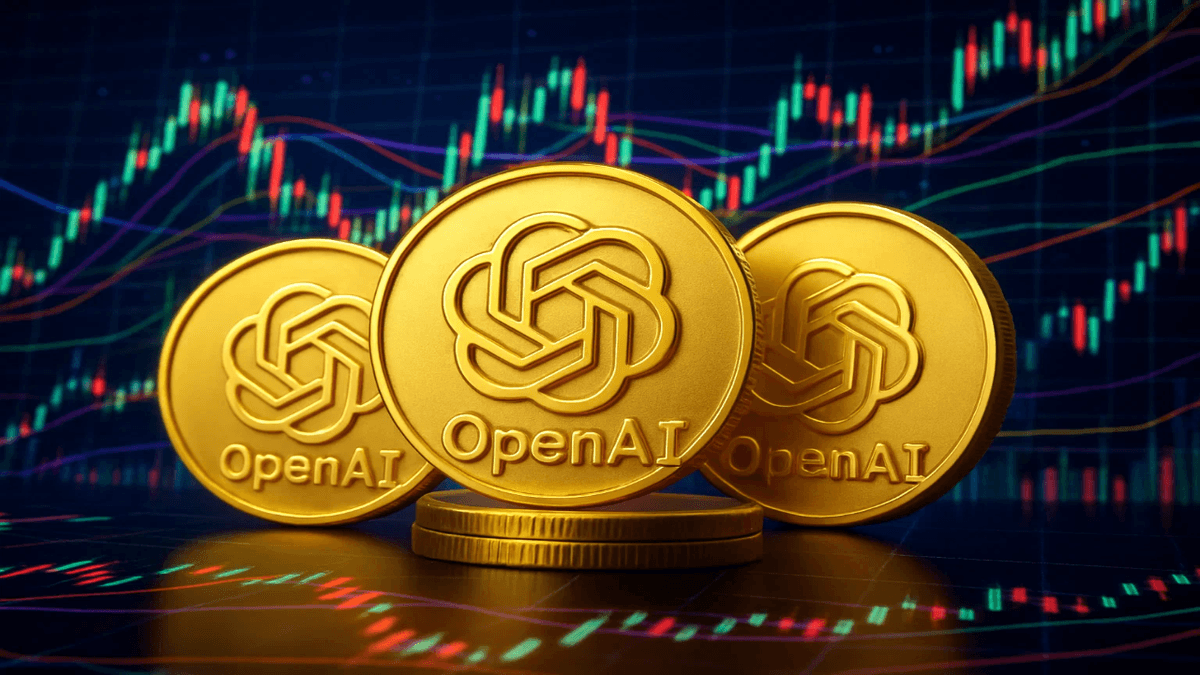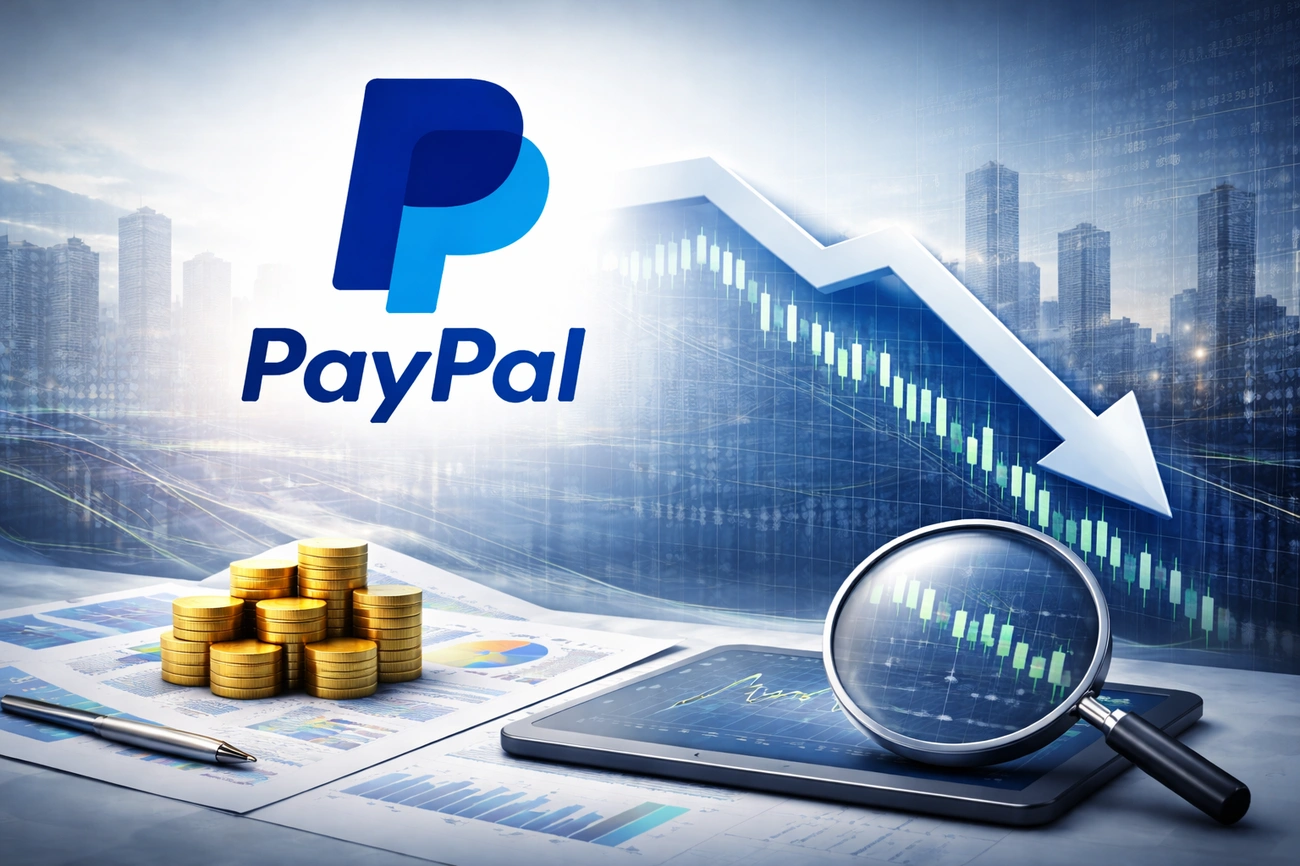Key Takeaways
- OpenAI is a leading AI research and deployment company known for its groundbreaking models like GPT-4 and DALL-E.
- Direct investment in OpenAI is not possible for retail investors as it is a private company with no current plans for an IPO.
- Alternative investment options include publicly traded companies like Microsoft, Nvidia, Alphabet, and Amazon, as well as AI-focused ETFs.
- The AI sector presents significant growth opportunities but also comes with risks such as market volatility and regulatory changes.
- Staying informed and diversifying investments are key strategies for navigating the AI investment landscape.
Introduction
Have you been captivated by the advancements in artificial intelligence and wondered how to invest in companies like OpenAI, the creators of ChatGPT? You're not alone. Many investors are eager to capitalize on the growth of AI, but investing directly in OpenAI isn't straightforward because it's a private company. The AI sector is booming, with increasing adoption across industries, and as an AI-powered assistant, I can guide you through the opportunities available. In this article, we'll explore what OpenAI is, why it's an attractive investment prospect, and how you can invest in the AI sector even if you can't buy OpenAI stock directly. Let’s dive into the world of AI investments and uncover the best paths for you.
What is OpenAI?
OpenAI, founded in December 2015, is an artificial intelligence research and deployment company based in San Francisco, California. Established by tech visionaries including Sam Altman, Elon Musk, Ilya Sutskever, and Greg Brockman, OpenAI’s mission is to ensure that artificial general intelligence (AGI)—highly autonomous systems that can outperform humans in most economically valuable work—benefits all of humanity. The company emphasizes developing AI in a safe, transparent, and ethical manner.
OpenAI has made significant contributions to AI, particularly in natural language processing and generative models. Its flagship products include:
- GPT Series: The Generative Pre-trained Transformer models, such as GPT-3 and GPT-4, power applications like ChatGPT, enabling human-like text generation and understanding.
- DALL-E: A model that creates images from text prompts, showcasing AI’s ability to bridge language and visual creativity.
- Sora: A text-to-video model that generates videos from textual descriptions, expanding the scope of generative AI.
The release of ChatGPT in November 2022 was a game-changer, amassing over 500 million weekly users by mid-2025 and sparking widespread interest in generative AI. OpenAI’s innovations are used across industries, from customer service to content creation, cementing its position as a leader in the AI field. Despite facing challenges like copyright lawsuits in 2023 and 2024 and leadership changes, OpenAI continues to set the standard for AI innovation. Learn more about AI-driven market analysis at Intellectia.ai.
Why Invest in OpenAI?
OpenAI’s prominence in the AI industry makes it an attractive investment prospect, and here’s why you might be interested:
- Pioneering Research: OpenAI is at the forefront of AI innovation, consistently releasing state-of-the-art models that redefine industry standards. Its focus on AGI positions it as a key player in shaping technology’s future.
- Commercial Success: ChatGPT’s rapid adoption, with over 500 million weekly users, highlights OpenAI’s commercial potential. The company is projected to generate $12.7 billion in revenue in 2025, driven by subscriptions, API usage, and enterprise solutions.
- Strategic Partnerships: A $13 billion investment from Microsoft provides OpenAI with financial backing and access to Azure’s cloud computing infrastructure, enhancing its scalability and development capabilities.
- Market Growth: The AI market is expected to grow significantly, potentially reaching hundreds of billions of dollars in the coming years. OpenAI’s leadership positions it to capture a substantial market share.
- Innovation Pipeline: OpenAI’s track record of continuous innovation ensures it remains competitive, with new models and applications regularly introduced.
However, as a private company, OpenAI’s shares are not available to retail investors, limiting direct investment opportunities. To explore AI stock selection strategies, visit Intellectia.ai’s AI Stock Picker.
Current Investment Status of OpenAI
OpenAI operates under a unique structure, combining a non-profit arm, OpenAI Inc., with a for-profit subsidiary, OpenAI Global LLC. This allows it to raise capital while maintaining its mission-driven focus. As of August 2025, OpenAI remains a private company, having raised significant funds through private investments. Microsoft’s $13 billion investment is a cornerstone, and in March 2025, OpenAI secured $40 billion at a $300 billion valuation, making it one of the most valuable private tech companies.
There are no confirmed plans for an initial public offering (IPO) as of now. In May 2025, OpenAI’s CFO, Sarah Friar, noted that the company’s restructuring could enable an IPO “if and when we want to,” but emphasized that market conditions and company readiness would dictate any decision. For retail investors, this means direct investment in OpenAI is not currently possible. However, you can stay updated on market trends with Intellectia.ai’s Stock Monitor.
Funding Round | Date | Amount Raised | Key Investors | Valuation |
| Initial Funding | Dec 2015 | $1 billion | Founders, others | - |
| Microsoft | 2019-2023 | $13 billion | Microsoft | - |
| Recent Round | March 2025 | $40 billion | SoftBank, Coatue, others | $300 billion |
Alternative Ways to Invest in AI
Since direct investment in OpenAI is not possible for retail investors, there are several alternative avenues to gain exposure to the burgeoning AI sector. These include investing in publicly traded companies that are leaders in AI technology, AI-focused exchange-traded funds (ETFs), and, for accredited investors, venture capital funds specializing in AI startups. Below, you can delve into each option with a focus on their financial performance, strategic advantages, and role in the AI ecosystem.
Publicly Traded Companies Involved in AI
Investing in publicly traded companies with significant AI involvement allows you to capitalize on the sector’s growth while benefiting from the stability of established firms. Here are some key players:
- Microsoft Corporation (MSFT)
Microsoft is a cornerstone of the AI landscape, largely due to its $13 billion investment in OpenAI. This partnership enables Microsoft to integrate advanced AI models, such as GPT-4, into its Azure cloud platform and productivity tools like Office 365, enhancing features like Copilot for Microsoft 365. Azure’s AI services attract a wide range of enterprise clients, driving significant revenue growth. In Q2 2025, Microsoft’s cloud segment, including Azure, likely saw robust growth, with analysts estimating a 30% year-over-year increase in cloud revenue. Microsoft’s diversified revenue streams, strong balance sheet, and continuous investment in AI research position it as a stable and attractive investment for AI exposure.
- Nvidia Corporation (NVDA)
Nvidia is the leading provider of graphics processing units (GPUs), which are critical for AI computations, particularly in training large language models and deep learning applications. The company’s dominance in the GPU market has fueled exceptional financial performance, with Q3 2025 revenue reaching $35.1 billion, a 94% increase year-over-year, driven largely by its data center segment. Nvidia’s GPUs are integral to AI applications in data centers, autonomous vehicles, and gaming, making it a linchpin of the AI ecosystem. Despite a high price-to-earnings (P/E) ratio, analysts project Nvidia’s earnings to grow at 38% annually over the next three years, reflecting strong demand for AI hardware. However, risks include reliance on a few large customers, such as Microsoft, which accounts for 13% of sales. - Alphabet Inc. (GOOGL)
Alphabet, Google’s parent company, is a pioneer in AI research through initiatives like Google Brain and DeepMind. AI enhances Google’s core businesses, including search algorithms, advertising targeting, and Google Cloud services. In 2025, Alphabet plans to invest $75 billion in AI infrastructure, signaling its commitment to maintaining leadership in the AI domain. This investment supports advancements in natural language processing and reinforcement learning, positioning Alphabet to capture growing demand for AI-driven solutions. Financially, Alphabet benefits from diversified revenue streams, with advertising and cloud services driving growth. Its strong market position and innovation pipeline make it a compelling choice for AI investors.
- Amazon.com, Inc. (AMZN)
Amazon leverages AI across its e-commerce platform and Amazon Web Services (AWS). In e-commerce, AI powers recommendation engines, supply chain optimization, and customer service chatbots, improving efficiency and customer experience. AWS offers a comprehensive suite of AI and machine learning services, attracting startups and enterprises alike. Amazon’s continuous investment in AI enhances its competitive edge, particularly in cloud computing, where AWS holds a significant market share. The company’s financial stability and ability to scale AI solutions make it a strong candidate for AI-focused portfolios. - Meta Platforms, Inc. (META)
Meta Platforms employs AI for content moderation, ad targeting, and developing immersive experiences in the metaverse. Its AI research division, FAIR, is renowned for advancing AI technologies. In Q2 2025, Meta reported a 22% year-over-year revenue increase and a 36% surge in net income, partly due to AI-driven efficiencies in its advertising business. Meta’s operating margin improved by 5 percentage points, reflecting the financial benefits of AI adoption. Investments in AI for virtual and augmented reality position Meta for future growth in emerging markets.
- Other Notable Companies
- Palantir Technologies (PLTR): Specializes in big data analytics and AI solutions for government and enterprise clients, offering platforms that leverage AI for actionable insights.
- Snowflake Inc. (SNOW): Provides a cloud-based data platform that supports AI and machine learning workloads, enabling enterprises to harness data for AI applications.
- ASML Holding N.V. (ASML): Supplies photolithography systems critical for manufacturing advanced semiconductors used in AI hardware, supporting the broader AI ecosystem.
These companies offer robust exposure to AI through their leadership in software, hardware, and infrastructure, backed by strong financial performance and strategic investments.
AI-Focused Exchange-Traded Funds (ETFs)
For investors seeking diversified exposure, AI-focused ETFs are an excellent option, spreading risk across multiple companies involved in AI and related technologies.
- Global X Robotics & Artificial Intelligence ETF (BOTZ)
The Global X Robotics & Artificial Intelligence ETF (BOTZ) invests in companies poised to benefit from the adoption of robotics and AI. Its holdings include industry leaders like Intuitive Surgical, ABB, and Nvidia, covering sectors such as healthcare, industrial automation, and technology. With an expense ratio of 0.68%, BOTZ offers a cost-effective way to gain exposure to the AI and robotics sectors. The ETF’s performance has been strong, with the global AI market projected to grow from $184 billion in 2024 to $826.7 billion by 2030, according to Global X estimates. BOTZ’s diversified approach mitigates the risk of investing in individual stocks while capturing sector-wide growth.
- ARK Autonomous Technology & Robotics ETF (ARKQ)
Managed by ARK Invest, the ARK Autonomous Technology & Robotics ETF (ARKQ) focuses on companies involved in automation, robotics, and AI. Top holdings include Tesla, Trimble, and UiPath, reflecting a focus on disruptive innovation. With an expense ratio of 0.75%, ARKQ targets high-growth companies, making it suitable for investors with a higher risk tolerance. The ETF’s active management allows it to adapt to emerging trends in the AI sector, providing exposure to both established firms and innovative newcomers.
Venture Capital and Private Equity Investments in AI
Accredited investors can explore venture capital (VC) funds specializing in AI startups, offering the potential for significant returns by investing in early-stage companies. Notable VC firms like Sequoia Capital, Andreessen Horowitz, and Khosla Ventures have backed successful AI companies, including OpenAI and Anthropic. These funds invest in startups developing cutting-edge AI technologies, such as autonomous systems, AI-driven healthcare solutions, and generative AI models.
Investing in VC funds carries higher risk due to the uncertainty of startup success, with many early-stage companies failing to achieve profitability. However, successful investments can yield substantial returns, as seen with OpenAI’s $300 billion valuation in 2025. Platforms like EquityZen or Forge Global may offer secondary market opportunities for retail investors to access private company shares, though these are typically limited to accredited investors and involve complex regulations.
Investment Option | Key Features | Risk Level | Example Companies/Funds |
| Public Companies | Established firms with strong financials and AI integration | Moderate | MSFT, NVDA, GOOGL, AMZN, META, PLTR, SNOW, ASML |
| AI ETFs | Diversified exposure to AI and robotics companies | Low to Moderate | BOTZ, ARKQ |
| Venture Capital | High-growth potential in AI startups, for accredited investors | High | Sequoia Capital, Andreessen Horowitz |
Future Prospects and Risks
The possibility of an OpenAI IPO could open investment opportunities for retail investors, but as of August 2025, no timeline is confirmed. The company’s unique structure and mission may delay or prevent a public offering. Meanwhile, the AI sector is poised for growth, with applications expanding across industries like healthcare, finance, and transportation.
However, investing in AI comes with risks:
- Market Volatility: AI and tech stocks can experience significant price swings.
- Regulatory Challenges: Increasing scrutiny over data privacy and ethical AI use could impact profitability.
- Competition: The AI market is crowded, with rapid technological shifts affecting market leaders.
- Technological Risks: Not all AI projects succeed, potentially leading to investment losses.
Diversifying your portfolio and staying informed can help mitigate these risks. Use tools like Intellectia.ai’s AI Screener to identify promising AI investments.
Conclusion
While you can’t invest directly in OpenAI as of August 2025, the AI sector offers numerous opportunities through publicly traded companies like Microsoft, Nvidia, Alphabet, Amazon, and Meta, or through AI-focused ETFs like BOTZ and ARKQ. These investments allow you to benefit from the AI revolution while managing risks through diversification. For accredited investors, venture capital funds provide a high-risk, high-reward option to back emerging AI startups. The future of AI is bright, but it’s essential to stay informed about market trends and potential regulatory changes.
To make smarter investment decisions, sign up for Intellectia.ai to access daily AI stock picks, trading signals, and market analysis. Stay ahead in the dynamic world of AI investing with our cutting-edge tools and insights.






